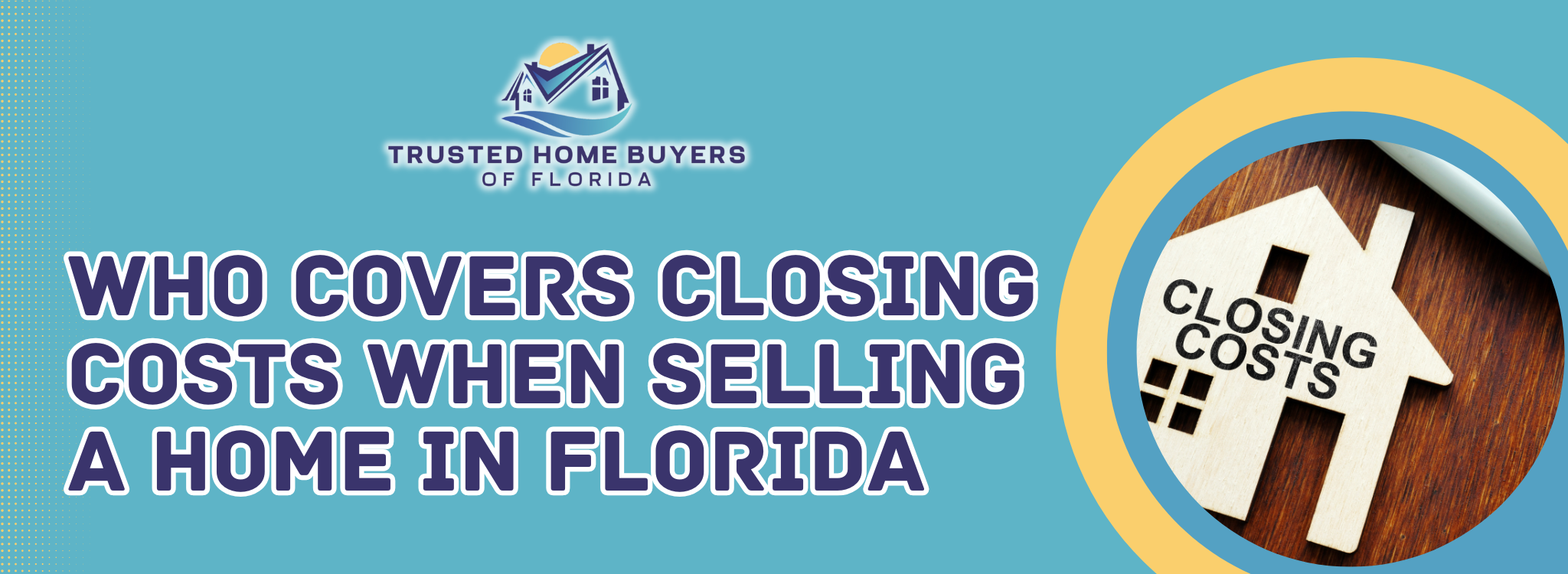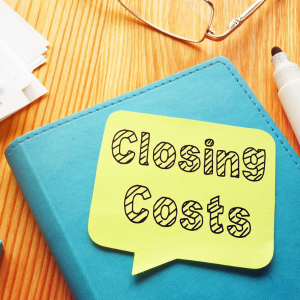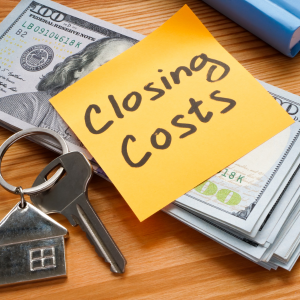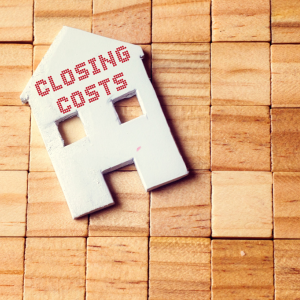
Key Considerations for Closing Costs in Florida
What factors influence closing costs in Florida?
In Florida, several factors can affect closing costs. These include the property’s type and value, market conditions, and various fees. Key components of closing costs are property taxes, lender fees, title insurance, appraisal fees, and escrow charges. Mortgage expenses like origination and application fees also have a major impact. Additionally, legal fees and transfer taxes, such as documentary stamps, significantly influence the total costs during a property transaction.
How can location within Florida affect closing expenses?

Where you buy in Florida can greatly affect your closing expenses. Property values, which vary by county and city, directly affect taxes and other costs. Higher property values usually mean higher closing costs due to increased taxes and insurance premiums. Local market conditions, such as demand and housing supply, can also cause fees to vary. Some counties might impose extra taxes or fees, adding to the overall closing costs.
Are there state-specific regulations impacting closing fees?
Florida has specific regulations that affect closing fees. Real estate laws here govern transfer taxes and documentary stamps, which are added to deeds and notes, increasing closing costs. Title searches and other legal requirements also fall under these regulations. Buyers and sellers should understand Florida’s rules to ensure compliance and accurate cost estimation. Consulting a real estate professional or legal advisor is advisable for navigating these requirements effectively.
Common Misconceptions about Closing Costs
Do cash buyers avoid paying closing costs in Florida?
A lot of people think that Florida cash buyers don’t have to pay closing costs, but they do. Some mortgage fees, like loan origination and inspection fees, are not charged if you buy a house with cash. But people who buy with cash still have to pay for things like settlement costs, title insurance, and escrow fees. People who pay cash might save some money on interest and lender fees, but they should know that there are other costs involved.
Is title insurance mandatory for both buyer and seller?

In Florida, both the buyer and the seller don’t always have to have title insurance, but it’s always a good idea to have it. If there are arguments or claims about who owns something, this insurance will protect you. Most of the time, the seller has to give the buyer a clear title. The buyer can get title insurance to protect themselves. There is no law that says you have to have title insurance, but it is a good idea because it protects you a lot.
Can closing costs be rolled into the mortgage?
When people buy a house in Florida, they can choose to add the closing costs to their mortgage. This method makes it easier to deal with the costs because they are added to the loan balance right away. This does, however, raise the cost of the loan and the interest payments over time. Buyers should talk to their lenders about this choice to see how it will affect their monthly payments and their ability to buy the house. Think about your present and future finances before you decide to use a mortgage to pay for closing costs.
Closing Cost Negotiation Tips
What aspects of closing costs are negotiable in Florida?
In Florida, some parts of closing costs can be negotiated. Here are key points:
- Title Insurance: Buyers and sellers can discuss who will pay for title insurance to change the cost split.
- Escrow Fees: These fees can be negotiated, allowing parties to decide who pays.
- Realtor Commissions: While usually pre-set, these commissions might be adjusted.
Knowing these negotiable parts can help buyers and sellers save money in real estate deals.
How can sellers leverage market conditions to reduce costs?

Sellers in Florida can use current market trends to cut down on expenses. Here are some methods:
- Seller Contributions: In a seller’s market, sellers might offer to cover closing costs to attract buyers, balancing other expenses.
- Buyer Concessions: Offering to cover fees or repairs can quicken the sale and still profit from high property values.
- Market Conditions: By studying local trends, sellers can avoid unnecessary concessions when demand is high, lowering costs.
These strategies help sellers handle the real estate market wisely, boosting their profits.
Strategies for buyers to negotiate closing fees
Buyers in Florida can use several strategies to lower closing fees:
- Lender Fees: Compare different lenders to find and negotiate better rates.
- Appraisal and Survey Costs: These can be discussed as part of buyer concessions, potentially getting reduced rates or seller coverage.
- Home Inspection Fees: Buyers might ask sellers to cover inspection costs if major repairs are needed.
Using these techniques can lead to significant savings and better financial terms for buyers.
Role of Real Estate Professional in Closing Costs
How do real estate professionals assist with understanding closing costs?
Real estate experts help both buyers and sellers in Florida understand closing costs. They provide:
- Fee Structure Guidance: Experts explain each part of the closing costs, clarifying which fees are mandatory or negotiable.
- Transaction Support: With knowledge of Florida’s real estate market, professionals help clients grasp the financial impact of each step for informed choices.
Their expertise is crucial in simplifying the closing process and ensuring smoother deals.
Can experts help negotiate lower fees?

Yes, professionals in Florida can help lower fees by:
- Commission Adjustments: Expert might lower their commission rates, influencing the cost split positively.
- Closing Cost Reduction: Experts use their network and market insights to get favorable terms for clients.
What are typical commission structures, and how do they affect closing costs?
In Florida, real estate commissions typically range from 5% to 6% of the property’s price, divided between the buyer’s and seller’s experts. This impacts closing costs in several ways:
- Realtor Commissions: Being a big part of transaction costs, commissions affect sellers’ net earnings and buyers’ final expenses.
- Negotiation Leverage: Knowing the structure helps clients negotiate better terms, possibly changing the cost burden between parties.
Detailed Breakdown of Seller vs. Buyer Responsibilities
What specific costs are generally covered by the buyer?
In Florida, buyers usually cover several key expenses in a real estate transaction. These typically include:
- Home Inspection Fees: Buyers pay for an inspection to check the property’s condition and avoid surprises later.
- Appraisal Fees: Lenders often require an appraisal to verify the property’s value for a loan.
- Title Insurance: This protects buyers from claims that could affect their ownership rights.
- Escrow Fees: These fees go to third-party services that handle the closing process.
- Lender Fees: These include charges by lenders such as loan origination, processing, and underwriter fees.
- Prepaid Interest: Buyers might need to pay interest from the closing date until the end of the month.
Which closing expenses are typically the seller’s responsibility?

Sellers in Florida usually have certain costs to cover in the transaction, including:
- Realtor Commissions: Sellers often pay the commissions for both their own and the buyer’s realtors, affecting their net sale proceeds.
- Documentary Stamps: This tax is on the property transfer document and is based on the sale price.
- Property Taxes: Sellers need to settle any outstanding property taxes up to the closing date.
How are prorated taxes handled during closing?
At closing, property taxes in Florida are typically divided between the seller and buyer, so each pays their share based on how long they have owned the property during the tax year.
- For the Seller: Taxes are computed up to the day of closing.
- For the Buyer: They take on tax responsibilities from the closing date forward.
Exploring the Impact of Lender Fees
What are common lender fees included in closing costs?
Lender fees in Florida can significantly add to closing costs and often include:
- Loan Origination Fees: Charged for processing the loan.
- Prepaid Interest: Covers interest from the closing date until the first mortgage payment.
- Flood Certification Fees: Determines if the property is in a flood zone, affecting insurance needs.
How can buyers minimize lender-related expenses?

Buyers looking to reduce lender fees might try these strategies:
- Compare Lenders: Checking with different lenders can help find better fees and rates.
- Negotiate Closing Costs: Some costs can be negotiated. Buyers should discuss potential reductions with their lenders.
Does the choice of lender significantly impact total closing costs?
Choosing a lender can greatly affect total closing costs in Florida. Different lenders have varied fee structures, which influence overall mortgage expenses. Working with real estate professionals can help buyers understand all potential loan costs.
Importance of Home Inspections on Closing Costs
How do home inspections influence the final closing cost?
Home inspections are a big part of figuring out how much it costs to close in Florida. The inspection report lists the repairs that need to be done, which can change how buyers and sellers negotiate. People who want to buy something usually try to get the price lowered or ask the seller to pay for the repairs. These talks can change the final closing cost, which could make it cheaper for the buyer or more expensive for the seller.
Are there standard inspection fees across Florida?

In Florida, inspection fees aren’t always the same, but they’re usually in a fairly stable range. Across the state, there is no one fee. Instead, costs vary based on things like the size and location of the home. Homeowners can figure out what their expected costs are and avoid overpaying by comparing the fees charged by different service providers.
What happens if major repairs are needed after inspection?
Finding big problems with a Florida home during an inspection can have a big effect on the sale process. When this happens, the buyer will often try to negotiate with the seller, asking them to fix the problem or pay the buyer money. A contingency clause sometimes lets the buyer back out of the deal without losing their deposit if the two parties can’t come to an agreement. This can affect both their finances and the total closing costs.
Influence of Market Trends on Closing Costs
How do fluctuating property values affect closing costs?
Costs to buy and sell homes in Florida change with the market. Costs may go up along with a home’s value when it goes up in value. It might cost more or less now because of this. However, if the value of the home drops, it might be smarter to pay the closing costs. If you know about changes in the real estate market ahead of time, you can be ready for them.
Are closing costs higher in a buyer’s or seller’s market?

Florida is either a buyer’s market or a seller’s market. This changes how much it costs to close. Sometimes, closing costs go up when a lot of people want to buy a house. This is because people have to pay more. Do you know what a buyer’s market is? They might be ready to pay more and have more negotiating power, which could mean that closing costs are lower.
Strategies to capitalize on market trends when managing closing costs
To get the most out-of-state real estate market trends, you need to plan ahead and look at data. If you study the market or buy when the market is going up, you might pay less for closing costs. You can save a lot of money if you know how the market works and buy things at the right time.
Comprehensive Guide to Transfer Taxes and Title Search Fees
What role do transfer taxes play in the closing process?
When you buy or sell a home in Florida, transfer taxes add a lot to the price. At the closing, these fees, which are known as “documentary stamps,” are added to the price of transferring the deed. The amount is given based on how much the property is worth and where it is. It is an important part of keeping public records of who owns what when it changes hands. It’s important to know these costs because they change how much cash you need to buy a house. Each person involved in the deal needs to know who pays the transfer taxes so that no extra fees are charged.
Who is responsible for the title search fee in Florida?

Most of the time, the buyer in Florida pays for the title search. However, this can be spelled out in the sale contract. A title search checks the title of the property to see if there are any liens or claims against it. The title company that does the search will charge these fees. If buyers know about these fees, they can plan for other closing costs and choose a reputable title company to make the process go more smoothly.
Can title search issues delay the closing process?
The closing could be pushed back if there are issues with the title search or claims that haven’t been settled. The title search checks to see if the seller really does own the house and finds out what debts they have. Problems like liens or ownership disputes could cause the closing date to be pushed back, which would cost more and take longer to fix. You should start the title search early to avoid having to wait too long.
The Role of Attorneys and Legal Fees in Closings
When is it advisable to hire a real estate attorney?
Hiring a real estate attorney is wise for complex transactions in Florida, especially those with legal intricacies. Attorneys offer expert guidance in handling documents, ensuring legal compliance, and safeguarding client interests. Their help is beneficial in deals with significant transaction costs, tough negotiations, or expected disputes.
How do legal fees contribute to overall closing costs?

Legal fees are a notable part of the total closing costs in Florida real estate transactions. These fees cover attorneys’ efforts in drafting contracts, checking due diligence, and meeting legal requirements. Though they raise expenses, legal fees are a wise investment to protect against costly legal issues later.
What legal issues can arise during the closing process, and how are they resolved?
Various legal issues can occur during closings, such as title defects or zoning disputes. Real estate attorneys in Florida identify and resolve these issues. They collaborate with involved parties, using their expertise to negotiate solutions and meet legal standards. Addressing legal issues early helps reduce delays and extra transaction costs, leading to a smoother closing.
FAQs:
What Are the Typical Closing Costs for Selling a House in Florida?
Closing costs in Florida generally include title insurance, recording fees, and real estate professional commissions, typically adding up to about 5% to 7% of the sale price.
Who Usually Pays the Closing Costs When Selling a House in Florida?
Sellers in Florida often cover the real estate commission and title insurance, while buyers typically handle loan-related fees. However, these costs can be negotiated between both parties.
What Are Some Ways to Reduce Closing Costs When Selling a Property?
To minimize closing costs, sellers can negotiate with the buyer, compare service providers, or ask their realtor about potential rebates or incentives.
Do Sellers Need a Lawyer to Sell a House in Florida?
Although not legally required, hiring a lawyer can help ensure contracts are accurate and protect the seller’s interests throughout the transaction.
How Do Closing Costs for Condos Differ from Regular Homes in Florida?
Selling a condo may include additional fees such as Homeowners Association (HOA) dues or assessments, along with standard charges for title insurance and real estate commissions.
Can Closing Costs Be Estimated Before Selling a House?
Yes, online calculators can provide a rough estimate of closing costs. A real estate expert or broker can also offer a more personalized estimate based on the specific transaction.
What Role Does Escrow Play in the Closing Process?
Escrow serves as a neutral third party that holds funds until all conditions of the sale are met, ensuring both the buyer and seller fulfill their obligations before releasing the funds.
Are There Any Special Considerations for Selling Homes in Other Cities Like Houston, Seattle, or Philadelphia?
Each city has unique real estate regulations and market conditions. Sellers should research local laws and consult a real estate expert familiar with the specific city’s market dynamics.
Key Insights
- When selling a house in Florida, it’s important to know who typically pays closing costs. Sellers usually cover title insurance and prorated property taxes, but costs can vary widely.
- Closing costs in Florida include various expenses like transfer taxes and mortgage payoff amounts. These costs might be higher in larger cities compared to smaller counties.
- To estimate your selling costs, use a closing cost calculator to get insights into average fees and help avoid unexpected expenses.
- Buyers and sellers might negotiate who covers certain costs. Incentives often play a role, especially in competitive markets like San Diego or Houston.
- Understanding the basics of closing costs means recognizing common items involved, such as loan amounts, APR rates, and contract fees.
- There are many resources for those buying homes, with websites offering advice on how costs are disbursed and tips to reduce them.
- In states like California, New York, and Illinois, different regulations can impact costs. Comparing these can provide a broader perspective on what’s typical.
- While judgments and rebates can affect final costs, sellers don’t have to worry about public records showing unpaid debts if all agreements are met at closing.
- Selling a home involves working with financial institutions to ensure mortgage payoffs are calculated accurately, helping maintain trust with buyers.
- Discussions often include contexts like rebates or finance options, which may involve extra fees but also present chances to save money.
These insights apply throughout Florida, including Deltona, Sanford, Daytona Beach, Port Orange, St. Augustine, and surrounding areas. For help, call (386) 270-3073 or visit Trusted Home Buyers of Florida for more information.

